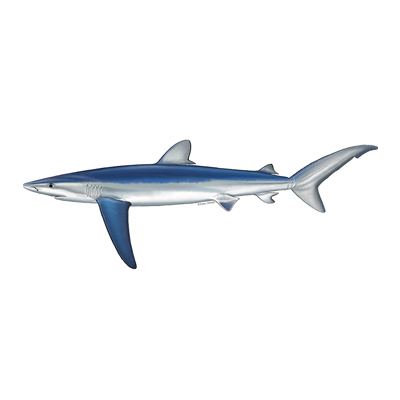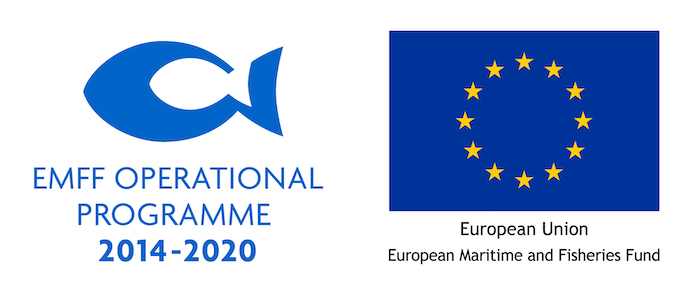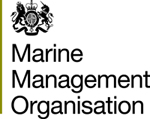

Blue shark are sleek, streamlined oceanic predators with a striking blue, almost purple colouration. They are one of the most widely distributed sharks globally. Blue Shark are rarely offered for sale in Cornwall and it is not recommended that you eat this species.
Blue sharks are long lived and relatively slow growing sharks which travel with oceanic currents over huge distances each year. Although not particularly targetted in cornwall they very vulnerable to fishing and are heavily fished in other parts of their range. Little is known about their stocks but they are listed as near threatened by ICUN.
In 2021 a total of 3.95 tonnes of blue sharks were landed to Cornish ports with a value of £1800 (MMO data).
Updated July 2023
Cornwall

This species is vulnerable to over fishing and is not recommended
Learn moreCornwall Good Seafood Guide rates fish on sustainability using a scale of 1 to 5.
1, 2 and 3 are recommended, Fish to avoid are rated 5.
We use the system devised by the Marine Conservation Society (MCS) so our scores are comparable with the scores produced by MCS for the UK and fisheries from all around the world. For more information on scoring click here.
Blue sharks are fast oceanic predators that specialise in feeding on mackerel and other pelagic fish and squid, although there is evidence they are opportunistic and do occasionally feed nearer the seabed on demersal species and occasionally eat sea birds. Blue sharks are long lived and females will give birth to up to 135 pups in a litter after a 9- 12 month gestation period.
Despite their worldwide distribution and the large amounts of blue shark caught across their range, this is a poorly studied species. Estimated by ICUN as 20 million sharks per year are caught in the Atlantic.
There is no limit on catches of blue shark in our waters and there is no minimum landing size. It is fortunate that this species is not being actively targetted by commercial fishermen.
Blue Sharks are occasionally caught by Cornish fishermen using baited hooks attached to the end bouys of gill nets. They are also caught by rod and line although the majority of shark anglers will catch and release this species.






Cornwall Good Seafood Guide is underpinned by the Marine Conservation Society (MCS) Good Fish Guide. The first UK consumer guide to sustainable seafood. For more information visit www.fishonline.org
Cornwall Good Seafood Guide is here to help us all make sustainable seafood choices. Choices that will help us keep the oceans healthy and Cornish fishers' futures safe. This website is funded by Cornwall Wildlife Trust. If you would like to make a meaningful difference to the health of our oceans, please consider making a donation to the Cornwall Wildlife Trust Ocean Emergency fund. Your donation will help safeguard these remarkable environments, ensuring that they continue to thrive for generations to come. Together, we can be stewards of the seas and champions for a healthier, more sustainable future.